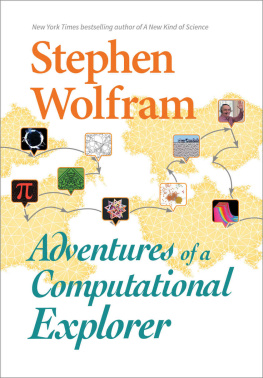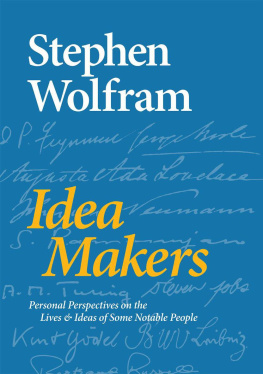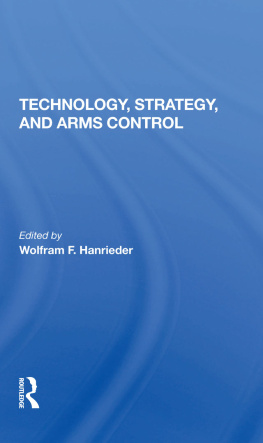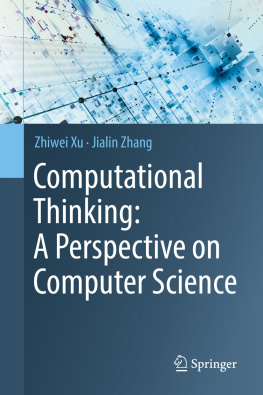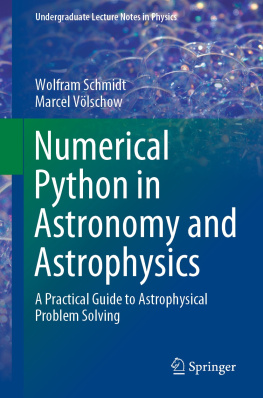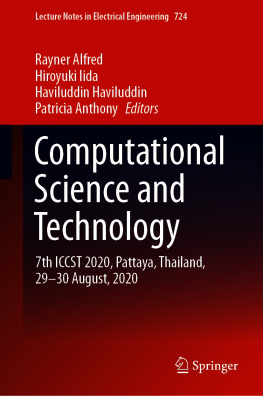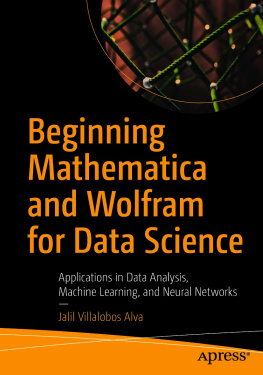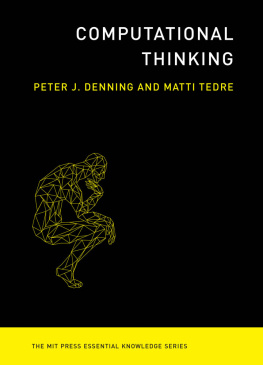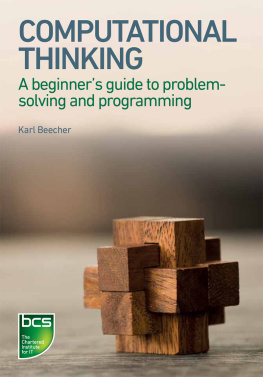
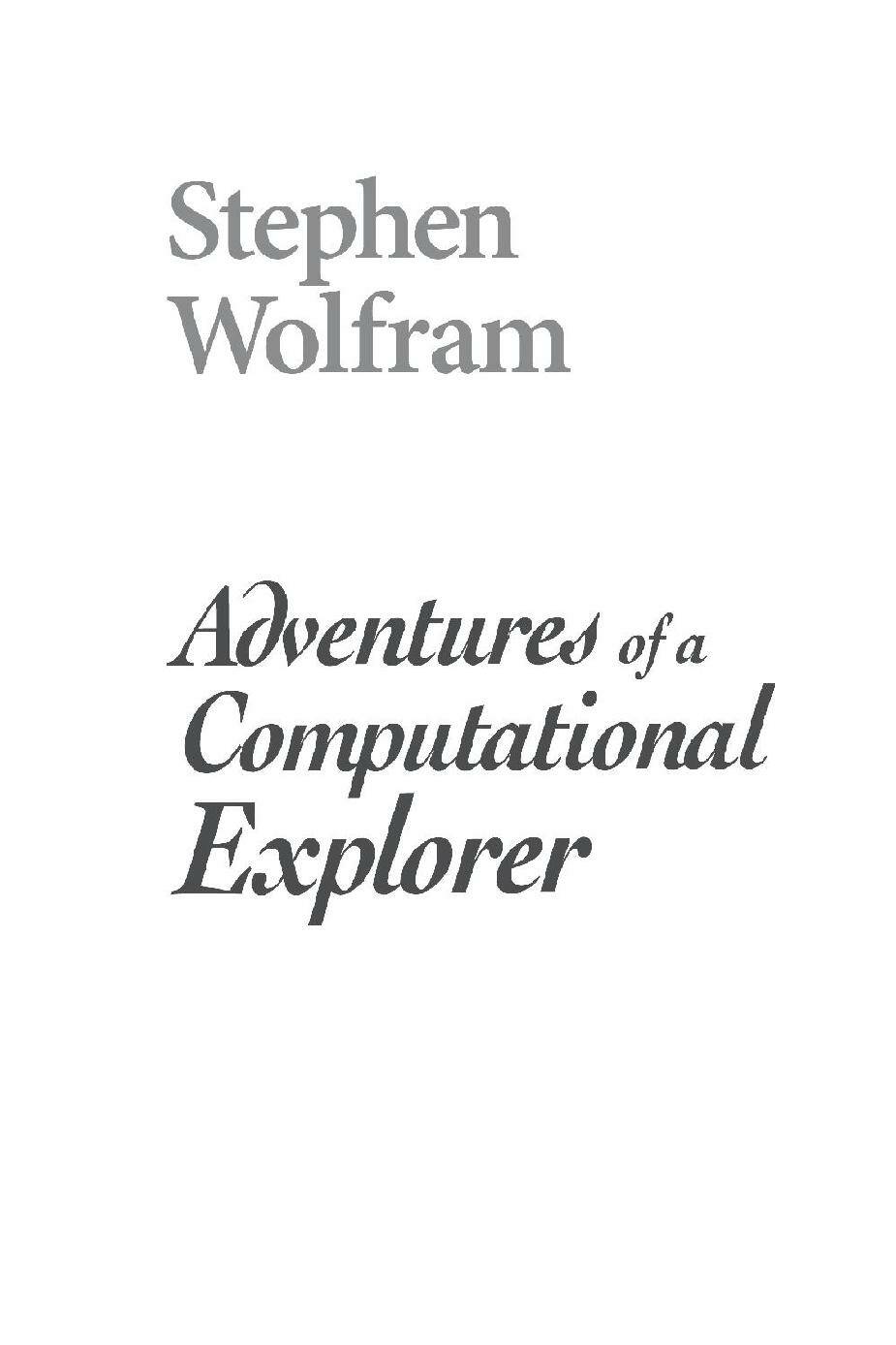
Adventures of a Computational Explorer
Copyright 2019 Stephen Wolfram, LLC
Wolfram Media, Inc. | wolfram-media.com
ISBN 978-1-57955-026-4 (hardback)
ISBN 978-1-57955-028-8 (kindle)
Biography / Science
Library of Congress Cataloging-in-Publication Data
Wolfram, Stephen, author.
Adventures of a computational explorer / Stephen Wolfram.
First edition. Champaign, Illinois : Stephen Wolfram, LLC, [2019] Collection of essays the author has written over the past dozen years for various occasions. LCCN 2019012752 (print) LCCN 2019016518 (ebook) ISBN 9781579550271 (ebook) ISBN 9781579550264 (hardcover : acid-free paper) LCSH: Computer science. Wolfram, Stephen. Computer scientists-United States-Biography. LCC QA76.24 (ebook) LCC QA76.24.W65 2019 (print) DDC 004dc23 LC record available at https://lccn.loc.gov/2019012752
Sources for photos and archival materials that are not from the authors collection or in the public domain:
pp. 1, 4, 20, 26: Paramount Pictures; pp. 4: Amy Adams, Denis Villeneuve; pp. 39: Keith Schengili-Roberts; pp. 42: Clemens Schmillen, Pablo Gimenez; pp. 42, 43, 60, 66, 69: Getty Images; pp. 41: Ames Construction; pp. 43: Eric Coqueugniot, CNRS; pp. 44, 6372: NASA; pp. 44, 45: PBS-WTVP, Big Pacific; pp. 63: Pauli Rautakorpi; pp. 66: Cosmosphere, Kansas; pp. 74: The Planetary Society; pp. 119: Centre for Computer History; pp. 120: Berkeley Physics, McGraw Hill, 1964; pp. 121: Nuclear Physics B , 1976; pp. 122: Anthony Hearn; pp. 123: M. J. G. Veltman; pp. 123: Computer History Museum; pp. 183: Twitch.tv; pp. 218: ETH-Bibliothek Zrich; pp. 224: J. Mater. Sci ., A. R. Kortan, H. S. Chen, J. M. Parsey et al., 1989; B. Dubost, J-M. Lang et al. Nature 324, 4850, 1986; pp. 225: P. Guyot, Nature 326, 640641, 1987; pp. 230: Yolanda Cipriano; pp.2301: Paula Guerra; pp. 235: Sit Kong Sang, art by Flvio Imprio; pp. 337, 343: Alyssa Adams; pp. 349: Jared Tarbell (CA Chain); Kristoffer Myskja (hole-punch); Troika (cubes); Fabienne Serriere (scarf); Cam Fox (tea cozy); www.oneandother.io, @oneandother.io (shirt); Jeff Cook (block); art by Sultra & Barthlmy, automata by Nazim Fats (rug); Gavin Smith (worksheets)
Preface
You work so hard... but what do you do for fun? people will ask me. Well, the fact is that Ive tried to set up my life so that the things I work on are things I find fun. Most of those things are aligned with big initiatives of mine, and with products and companies and scientific theories that Ive built over decades. But sometimes I work on things that just come up, and that for one reason or another I find interesting and fun.
This book is a collection of pieces Ive written over the past dozen years on some of these things, and the adventures Ive had around them. Most of the pieces I wrote in response to some particular situation or event. Their topics are diverse. But its remarkable how connected they end up being. And at some level all of them reflect the paradigm for thinking that has defined much of my life.
It all centers around the idea of computation, and the generality of abstraction to which it leads. Whether Im thinking about science, or technology, or philosophy, or art, the computational paradigm provides both an overall framework and specific facts that inform my thinking. And in a sense this book reflects the breadth of applicability of this computational paradigm.
But I suppose it also reflects something else that Ive long cultivated in myself: a willingness and an interest in applying my ways of thinking to pretty much any topic. I sometimes imagine that I will have nothing much to add to some particular topic. But its remarkable how often the computational paradigmand my way of thinking about itends up providing a new and different insight, or an unexpected way forward.
I often urge people to keep their thinking apparatus engaged even when theyre faced with issues that dont specifically seem to be in their domains of expertise. And I make a point of doing this myself. It helps that the computational paradigm is so broad. But even at a much more specific level Im continually amazed by how much the things Ive learned from science or language design or technology development or business actually do end up connecting to the issues that come up.
If theres one thing that I hope comes through from the pieces in this book its how much fun it can be to figure things out, and to dive deep into understanding particular topics and questions. Sometimes theres a simple, superficial answer. But for me whats really exciting is the much more serious intellectual exploration thats involved in giving a proper, foundational answer. I always find it particularly fun when theres a very practical problem to solve, but to get to a good solution requires an adventure that takes one through deep, and often philosophical, issues.
Inevitably, this book reflects some of my personal journey. When I was young I thought my life would be all about making discoveries in specific areas of science. But what Ive come to realizeparticularly having embraced the computational paradigmis that the same intellectual thought processes can be applied not just to what one thinks of as science, but to pretty much anything. And for me theres tremendous satisfaction in seeing how this works out.
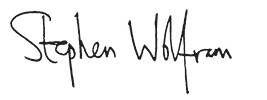
Quick, How Might the Alien Spacecraft Work?
November 10, 2016
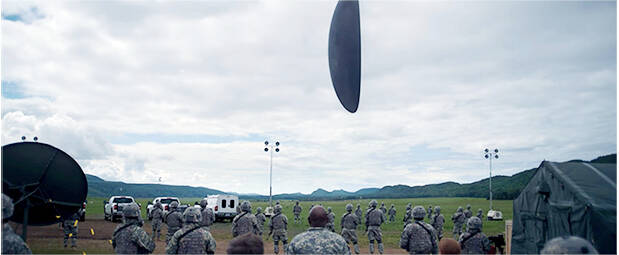
Connecting with Hollywood
Its an interesting script said someone on our PR team. Its pretty common for us to get requests from movie-makers about showing our graphics or posters or books in movies. But the request this time was different: could we urgently help make realistic screen displays for a big Hollywood science fiction movie that was just about to start shooting?
Well, in our company unusual issues eventually land in my inbox, and so it was with this one. Now it so happens that through some combination of relaxation and professional interest Ive probably seen basically every mainstream science fiction movie thats appeared over the past few decades. But just based on the working title (Story of Your Life) I wasnt even clear that this movie was science fiction, or what it was at all.
But then I heard that it was about first contact with aliens, and so I said, sure, Ill read the script. And, yes, it was an interesting script. Complicated, but interesting. I couldnt tell if the actual movie would be mostly science fiction or mostly a love story. But there were definitely interesting science-related themes in italbeit mixed with things that didnt seem to make sense, and a liberal sprinkling of minor science gaffes.
When I watch science fiction movies I have to say I quite often cringe, thinking, Someones spent $100 million on this movieand yet theyve made some gratuitous science mistake that could have been fixed in an instant if theyd just asked the right person. So I decided that even though it was a very busy time for me, I should get involved in whats now called Arrival and personally try to give it the best science I could.
There are, I think, several reasons Hollywood movies often dont get as much science input as they should. The first is that movie-makers usually just arent sensitive to the science texture of their movies. They can tell if things are out of whack at a human level, but they typically cant tell if something is scientifically off. Sometimes theyll get as far as calling a local university for help, but too often theyre sent to a hyper-specialized academic wholl not-very-usefully tell them their whole story is wrong. Of course, to be fair, science content usually doesnt make or break movies. But I think having good science contentlike, say, good set designcan help elevate a good movie to greatness.
Next page
